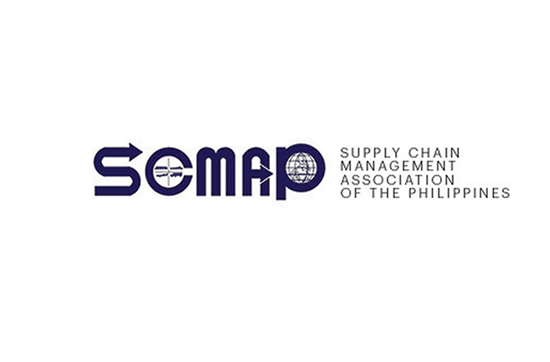I met with my doctor over the weekend. It was a long-delayed appointment; she had some tests for me to do in March, and you all know what happened in that month.
We got around to talking about all that happened in the past four months: of how hopeless the situation felt in hospitals as they struggled to keep up with the earliest cases of COVID-19, of how doctors and frontliners like her felt demoralized, of how they managed to cope nonetheless. She couldn’t have coffee with friends, so she assigned herself as her family’s designated grocery-goer; she had frontliner status and was therefore entitled to some perks, and it allowed her a chance to get out and do the shopping, to at least have some control over a hopeless situation.
“Ikaw, do you work in stocks?” she then asked.
“No, I work in supply chain,” I answered.
“Ah, kasi I wanted to ask sana what you think of the country’s economy during this pandemic.”
The answer I gave her is the same answer I have articulated in this column over the past months. The Philippines is a consumption-driven economy. We spend the money we earn on everything, from essential goods (now there’s a term that’s entered our lexicon), to items and experiences that put a smile on our faces like travel and hobbies, to long-term purchases and investments like vehicles and appliances. The revenues businesses make providing these products and services allow its employees to spend their money on, well, everything, from… you get the drill. It’s how the cycle works.
The restrictions on business operations and physical movement has pretty much put a stop to all of this. While businesses deemed essential were allowed to operate, many others have had to scale down or stop operations altogether. The ripple effect is widespread. People have difficulty providing their families with the essentials, more so the non-essentials, as they find themselves earning less, or out of a job altogether. Businesses have difficulty satisfying the demand for their products and services as they contend with operational and supply chain barriers. And even as we’re slowly reopening our economy, the impact of these restrictions will be felt for years to come.
Now, this isn’t to say we shouldn’t have done community quarantine. Our health system is, frankly, not ready for a disease with so many unknowns; we had to buy ourselves all the time we could to prepare for it. But, four months in, have we truly had COVID-19 a little more under control? We’re seeing more cases every day. We’re doing more tests, supposedly, but it still doesn’t seem enough. We’re always being told to stay at home and to not be stubborn, even if mobility data from Google suggested that we stayed at home more than other Southeast Asian countries who are actually handling the pandemic better. Every two weeks we learn that we’re staying under some form of community quarantine, without any solid sign that we’re making progress – and the government claiming we’re flattening the curve, despite indications to the contrary, doesn’t count. They’re still scrambling to bolster their response to COVID-19, after all.
All this uncertainty does not bode well for our economy. The Bangko Sentral’s latest consumer confidence survey, held last April, showed less optimism; it’s safe to say the downward trend will continue as the economic impact of COVID-19 is better understood. E-commerce may be booming but its reach is still limited compared to malls, which remain empty as people stay away. Stores, especially independent ones, find themselves shutting down for good, unable to serve their customers while still contending with fixed costs. And that’s not to mention those who have been sidelined from the onset: the jeepney drivers who can’t ply their routes, the office workers whose pays have been docked, the freelancers who find their projects drying up. Strengthening our supply chain networks to be more resilient is always a good thing, but it will mean nothing if consumption dries up since nobody can afford it.
The National Economic and Development Authority projects the Philippine economy will lose PHP 2.2 trillion this year. Trade undersecretary Rafaelita Aldaba recently told Congress that the government should be doing more to support businesses struggling during the pandemic – efforts that some economic managers believe the country cannot afford. And our leaders are suggesting that we should just live through all this uncertainty while we wait for a vaccine against COVID-19 to arrive – and even then, we’re not sure if we’ll be able to get it fast enough, and distribute it to every Filipino effectively.
My doctor said that, realistically, it’ll take ten years for a vaccine to be put in place, even if efforts to develop one are being fast-tracked.
So, yes, we will have to live with this for much longer, but it does not mean we have to sit here and just hope it goes away. We in the private sector are doing our part to cushion the blow, but ultimately, we can only do so much. The government has to do more, much more, both to regain our confidence in these uncertain times, and to make sure we bounce back faster, and better – and more importantly, ensure that no one is left behind in the process, whether it’s because they can’t afford to make the jump to digital, or because they’re in the margins, difficult to reach.
It’s about time we demand more. We cannot just wait for a silver bullet to save us.
SCMAP Live on e-commerce: The second edition of our online event series will look at how we can better take advantage of the opportunities provided by e-commerce. Register online for free via scmap.org.
Henrik Batallones is the marketing and communications director of SCMAP, and editor-in-chief of its official publication, Supply Chain Philippines. More information about SCMAP is available at scmap.org.





